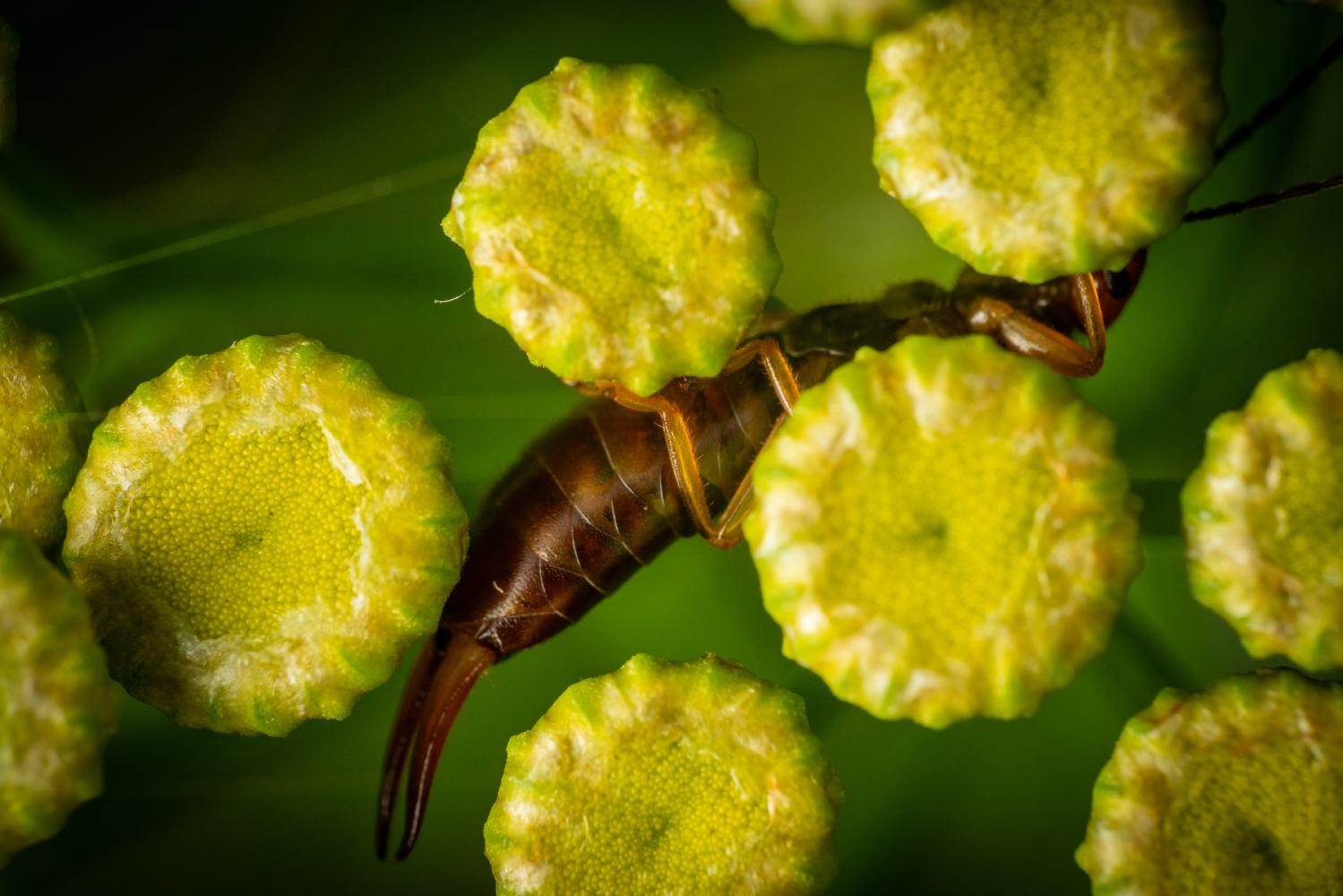Death in the garden
As Otto the earwig meanders past blades of grass and discarded rubbish through the expansive meadow he calls home, he sometimes gets so frightened that he wants to turn back and hide under leaves. The world outside has become dangerous, not just for him, but for all insects.
With his six legs, he skilfully moves forward, but sometimes he feels awkward, almost helpless, in the face of the threats that lurk everywhere. Otto is blessed with human qualities that give him a deep awareness of his surroundings. He feels, he thinks, and he suffers. When he encounters two dead bees on his way, his heart falters. One of the bees has crippled wings - a grim testimony to the destruction that “neonicotinoids” can cause.
These insecticides, once hailed as a marvelous remedy against pests, have become a deadly trap. Neonicotinoids have a systemic effect. They are absorbed by the plant and are found in all its parts - from the roots to the leaves, from the flowers to the nectar. For Otto and his friends who live from these plants, this means an ever-present threat. Death lurks in every drop of dew, in every grain of pollen.
Although the government has taken steps to restrict the use of the most dangerous neonicotinoids, emergency authorisations and the introduction of new insecticides with similar effects mean that the danger remains. Otto doesn’t know much about politics or laws, but he feels the impact of these decisions on his daily life. As he continues to wander through the meadow, he reflects on the irony of life. Insects like him, often seen as a plague, have now themselves become victims of a much bigger plague - the short-sightedness and indifference of humans.
Otto starts to wonder if there will ever be a time when humans understand the consequences of their actions and realise that the health of the earth is inseparable from the well-being of its smallest inhabitants. Tired, he finally returns to his hiding place under the leaves, exhausted and worried. In the silence of his shelter, Otto finds comfort in the thought that hope is the last to die. Hope that awareness will grow, and that change is possible. As he lies wrapped in the warm embrace of the earth, Otto dreams of a world in which insects and humans can live in harmony. A world in which death in the garden is not the end of the story, but the beginning of a new, shared future.
